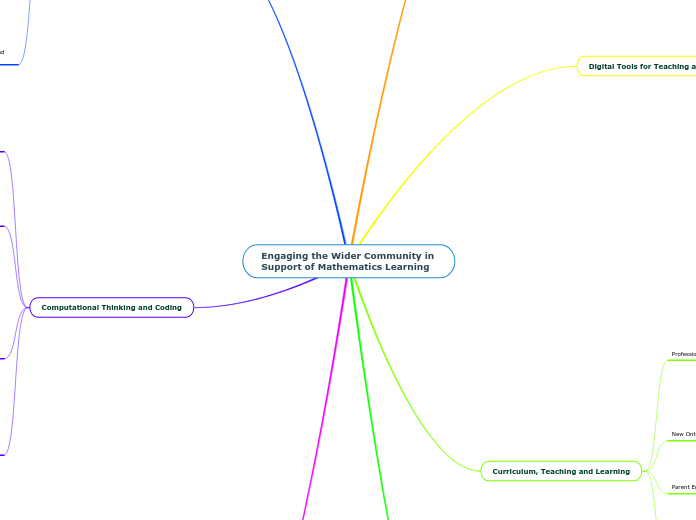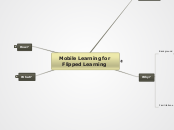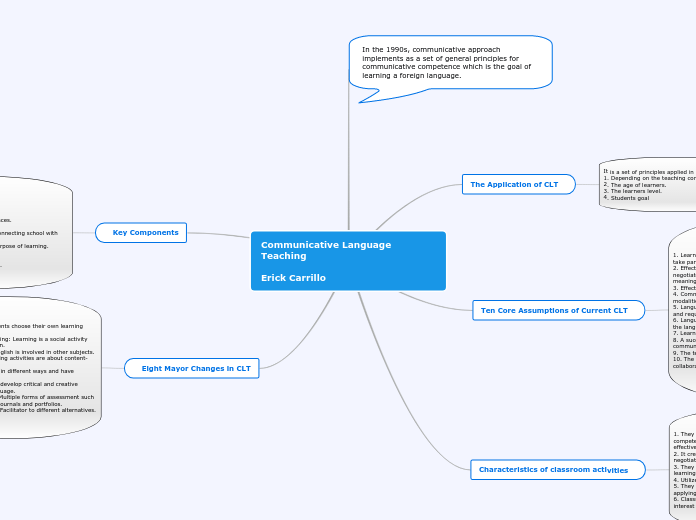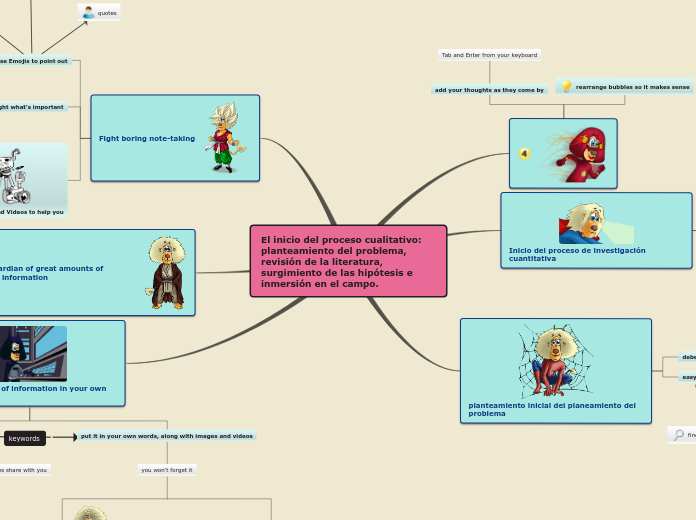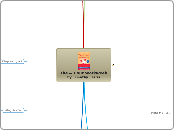Engaging the Wider Community in Support of Mathematics Learning
Mathematics in the Early Years
The Role of Play in Children's Learning of Mathematics
Learning Games
Most Educator Directed
Collaborative Play
Educator Guided
Inquiry
Free Play
Most Childe Directed
Learning Trajectories
"Teaching Student Centres Mathematics"
"Taking Shape"
"What to Look For"
"DREAM TE"
"Erkinson Institute"
"Learning and Teaching Math"
Scope and Sequence of Math Instruction
Pedagological Approaches:
- Responsive relationships
- Learning through exploration, play, and inquiry
- Educators as co-learners
- Environment as third teacher
- Pedagogical documentation
- Reflective practice and collaborative inquiry
- Direct, explicit instruction
What students know in math predicts reading achievement later in school
What students know in kindergarten and grade 1 predicts math achievement for future years
Early years are important for math development
Myths of Early Mathematics
I Don't Have Anything for this Students In Belonging & Contributing
Create interactive experiences for students so that everyone takes part in the activity
Teachers Pay Teachers
Not based on the curriculum or research
Andy vs. Sid
Toys do not need to be perfect. Students can build their own toys and manipulatives based on their need (like Sid)
When do I teach when the kids are playing all the time?
"A Kindergarten without substantial playtime puts everyone at a disadvantage, for play is the primary reality for its members. Play contains the only set of circumstances children understand from beginning to end. 'I can do well,' the kindergarteners seem to say." (Paley, 2009)
Morning Routines: Calendar & Weather
Involves rote learning and are not meaningful to children
Computational Thinking and Coding
Nurturing computational thinking with coding
Unplugged to Tinkering to Making to Remixing
Book: Coding for Young Mathematicians
Unplugged Coding Experiences
Lesson planning for computational thinking and coding.
Focus on thinking
Meaningful Feedback
Problem Solving
Do not OVER Scaffold
Ask Questions
Open Ended Quesitons
Differentiate the content, process, product, or learning environment
Learning for all
Differentiation
OAME - Lesson Plans For Coding
Computational Thinking
Develops higher order thinking skills
Gathering, Organizing and Analyzing Data
Creating a solution
Systematically and logically structuring procedures
draws on tools and techniques of computing
Problem Solving
Thinking Process
Coding with LYNX
Assessment, Evaluation and Feedback
Moderated practice of evaluating student work, grading and justifying rationale for feedback to students.
“….telling a learner if they are right or wrong is not good enough. To an engineer, this would be nonsense. Tantamount to installing a thermostat but forgetting to connect it to the furnace.” Dylan Wiliam – 2012
Internal and External Motivation Loop
Effective and Useful Feedback: Motive, Opportunity, Means
The role of feedback in self-regulation and social-emotional learning in math.
Stretch goals with feedback
Self-Regulation
Co-Regulation
Regulation
Growing Success
The Seven Fundamental Principles
Effective planning for assessment, evaluation and feedback for students to nurture the beauty of mathematics.
Language to Probe Students' Thinking
Knowledge and Understanding
Application
Thinking
Comminication
Front-loading of assessment, evaluation and feedback
Triangulated Assessment Data
Observation
Conversation
Products
Understanding the manner in which teachers support self-regulated learning
“Only through the continual and sympathetic observations of a child’s interests can the adult enter into the child’s life and see what it is ready for, and upon what material it could work for most readily and fruitfully” - John Dewey, My Pedagogic Creed, 1929
Special Education and Differentiated Instruction
Understand the profile of students with learning disabilities and the role of effective teaching strategies to plan for success.
Assessment Accommodations
Environmental Accommodations
Instructional Accommodations
Categories of Knowledge and Skills
Executive Function
Attention
Processing Speed
Memory
Visual-Motor Skills
Lannguage
Phonological Processing
A Guide To Effective Instruction
Strand
Grade
Volume of Guide
Learning for All
UDL and DI
Categories of Exceptionalities
- Behaviour
- Communication
- Intelectual
- Physical
- Multiple
Accommodations and Modifications
Curriculum, Teaching and Learning
Nurturing The Beauty of Mathematics
Coding
Can Code To Learn
Change of Language in the Curriculum
"Most important, the beauty of mathematics is experienced when exciting breakthroughs in problem solving are made and an air of relief and awe is enjoyed"
"The beauty in mathematics can be found in the process of deriving elegant and succinct approaches to resolving problems"
"the aesthetics of mathematics have also motivated the development of new mathematical thinking"
Parent Engagement in Mathematics
What do you want the parents of your students to
know?
"A Parents Guide to Mathematics" by the Ministry of Education
New Ontario Math Curriculum (2020)
High Impact Instructional Practices In Mathematics
Mathematical Processes
Social Emotional Learning
Professional Design of Learning Opportunities
Gallery Walk, Math Congress, Anchor Charts, Co-Constructing Success
Developing Cognitive Self-Regulation
Triangulation of Data
Spiralled Curriculum
Designers of Rich Learning Opportuniites
Digital Tools for Teaching and Learning
Integrating digital learning tools in the regular
classroom for student engagement and support.
Virtual Interactive Classrooms
Bitmoji Classrooms
Google Classroom
D2L - Brightspace
Understanding differentiation using digital platforms
Open Middle Math
Padlet
Number talks
Mathigon.org
Edutopia
Storyline Online
empower
Dreambox
Knowledge Hook
Mathology.ca
Nelson Learn At Home
TVO - mPower
TVO Mathify
Whiteboard.fi
Jamboard
Choice Boards
Classic Breakout EDU Digital Games
Toy Theater
Mathies
Games
Project Zero
Knowledge Mobilization
Understand Designing Aesthetic Experiences in Mathematics, Knowledge Mobilization and Community Engagement
Choice, Innovation, Collaboration, Knowledge Building
Playful Learning
Co-Constructing Learning
Gradual Release of Responsibility
Activate, Explore, Consolidate
Mathematical Communications
10 Dimensions of Mathematical Education
